About Litentry (LIT)
What is Litentry (LIT)?
Litentry (LIT) is the native token of the Litentry parachain network, which operates as a Decentralized Identity Aggregator. It is designed to provide on-chain identity verification and management for decentralized applications (dApps) and their users across multiple blockchain ecosystems. Litentry’s main goal is to enhance the management, authentication, and aggregation of decentralized identities, making it easier for users to control and share their identity data in a privacy-preserving manner.
Built on the Substrate framework, Litentry is tailored for Polkadot and other multi-chain ecosystems, including EVM-based platforms. It leverages technologies like Trusted Execution Environments (TEE), verifiable credentials, and customizable score computation to provide a more secure and user-centric approach to identity management in both Web2 and Web3 environments.
How does Litentry (LIT) work?
Litentry operates by linking identities across multiple blockchains in a privacy-preserving way. The protocol aims to give users full control over their personal data while enabling them to use it for various social and economic benefits, such as reputation management, governance, and DeFi participation. The protocol operates in a structured process that moves identity data from a fragmented state to a verifiable, unified identity.
Core Layers of Litentry:
- Source Data Layer: This layer gathers data from various sources, such as blockchains, social media profiles, and other Web2 platforms.
- Address Analysis Layer: The system analyzes the addresses (wallets, accounts, etc.) associated with the identity to ensure that the data is clean, valid, and accurate.
- Identity Aggregation Layer: This layer links the data from multiple sources into a unified decentralized identity that can be verified and used across various applications.
Key Functionalities:
- Linking Identities: Users link their on-chain and off-chain identities in a secure and privacy-respecting manner.
- Generating Scores and Credentials: Based on the linked identities, Litentry generates identity scores and credentials, which can be used for reputation or credit scoring.
- Issuance of Verifiable Credentials: These credentials allow users to verify their identities across different platforms without revealing sensitive personal information.
What are the potential use cases for Litentry (LIT)?
Litentry’s decentralized identity aggregation has many potential applications across various sectors of Web3 and beyond. Here are some key use cases:
- Airdrop Whitelisting: Litentry’s identity verification system can be used by crypto projects to filter out low-quality engagement and prevent bots or fake accounts from claiming airdrops. Projects can whitelist high-quality identities based on on-chain reputation or other metrics.
- Audience Selection & Community Insights: Communities and projects can use Litentry to gain deeper insights into their audience’s behavior and preferences. By leveraging decentralized identities, projects can tailor their campaigns, reward users more accurately, and incentivize users for sharing their pseudonymous identity data.
- Soulbound Tokens (SBTs) or NFTs: Litentry enables the creation of soulbound tokens or other identity-linked NFTs. These tokens could represent a user’s reputation or other credentials that cannot be transferred, thus proving their unique identity or achievements in the Web3 space.
- Web3 Native Job Markets: With Litentry, users can establish verifiable, privacy-respecting identities that they can use in Web3 job markets. This would allow decentralized recruitment and work agreements, providing workers with verifiable reputation scores and credentials.
- Credit Scores: Litentry’s ability to aggregate on-chain identities and create scores means that it can be used for developing a Web3 credit scoring system, where users can access services based on their on-chain activity, such as lending or borrowing in DeFi applications.
- Cross-Platform Reputation: Litentry allows a user’s reputation to be recognized across various platforms, providing a way to carry a unified identity and reputation across different ecosystems, regardless of whether they are on Ethereum, Polkadot, or other blockchains.
What is the history of Litentry (LIT)?
Litentry was founded by Hanwen Cheng, a former Software Engineer at Parity Technologies, after he recognized the need for an interoperable decentralized identity system. While working on a Signer project at Parity, Cheng realized that blockchain networks were lacking a reliable and privacy-preserving identity verification system. This insight led to the creation of Litentry as a side project in 2019.
After developing the project further, Litentry received significant support, including a grant from the Web3 Foundation and funding from several crypto VCs, such as FBG, Candaq, Hypersphere, Signum, Altonomy, and others. The project has grown to focus on building a decentralized identity aggregation layer for Polkadot, and it has continued to expand its features to support multiple blockchains.
Litentry’s development journey has been marked by its vision to bridge the gap between Web2 and Web3 through interoperable identity systems that preserve privacy and security, and it has been actively working towards listing its LIT token on major exchanges.



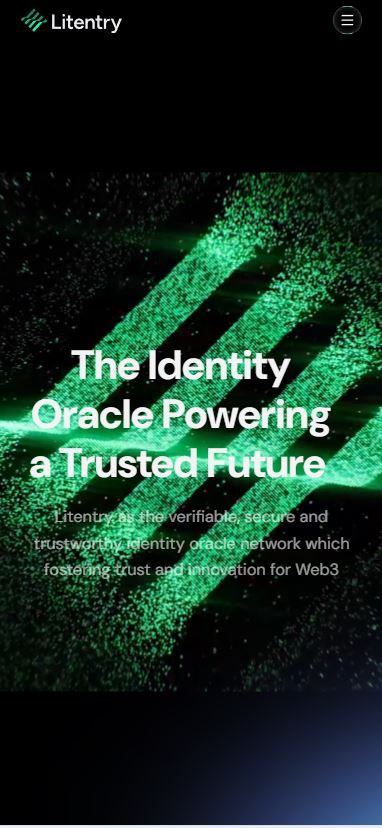
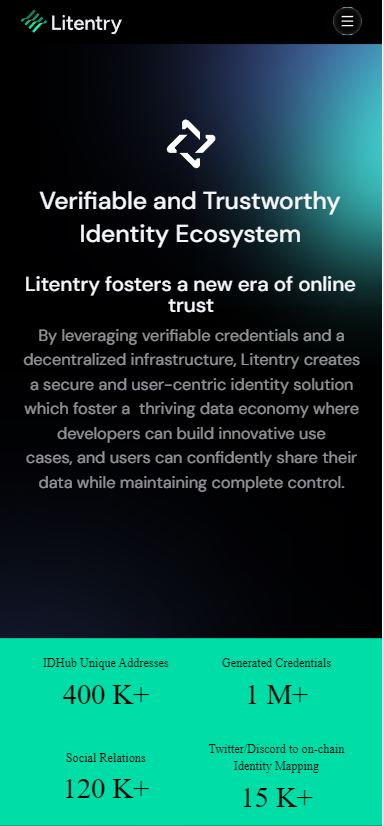
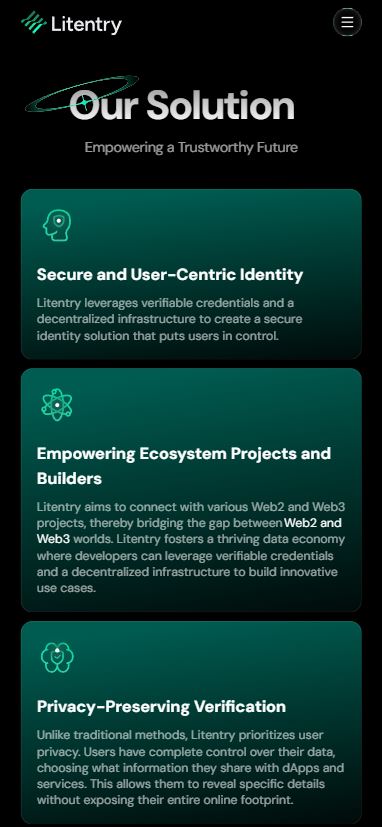
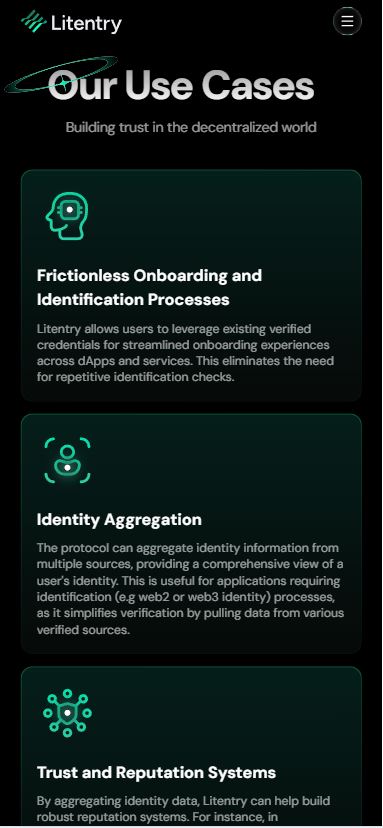
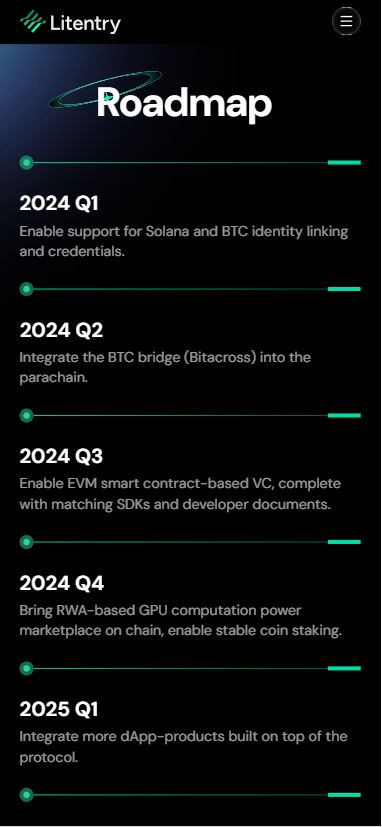
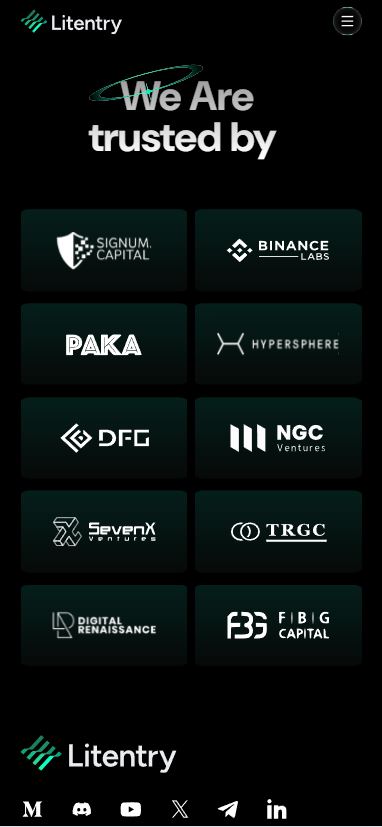

















Eyad –
‘